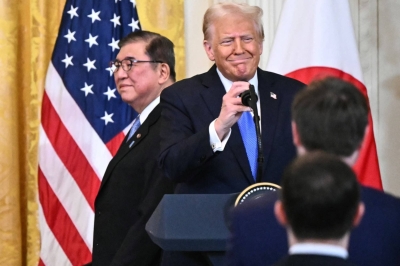The United States and South Korea have found common ground. Last week's summit between U.S. President George W. Bush and South Korea's Roh Moo Hyun should allay concerns about a split between them. The two men reaffirmed their commitment to a peaceful resolution of the North Korean nuclear crisis while laying the foundation for another half century as allies. Although cynics will say the success was the result of a tightly scripted meeting, the two governments deserve credit for recognizing the need for just that sort of arrangement. The stakes were too high for failure.
Friction between the U.S. and South Korea has been high for some time. The two countries' perspectives on the best way to deal with North Korea have diverged sharply. South Koreans have felt that the U.S. does not understand the price that a hardline policy could exact if it did not work. A military accident last year that resulted in the deaths of two young Korean girls inflamed popular opinion; the subsequent acquittal of the U.S. service personnel involved unleashed a wave of anti-American sentiment. Many in the U.S. believed that candidate Roh rode that wave to victory in the December presidential campaign.
Since taking office, President Roh has done much to assuage fears that he would turn his back on the alliance that has guaranteed stability on the Korean Peninsula and in Northeast Asia for 50 years. Last week he made his first trip to the U.S. to meet Mr. Bush and assure the American people and the world that the U.S.-ROK alliance is solid and strong.


















With your current subscription plan you can comment on stories. However, before writing your first comment, please create a display name in the Profile section of your subscriber account page.